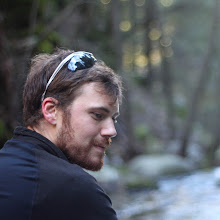This is admittedly a bit late in coming, but this project like all others should and must evolve over time. I've settled in thoroughly in Amman at this point. As we go forward I think you'd like to know some basics about my daily life, then I can build on that with stories about interesting encounters, travel, or thought provoking ideas. In addition to this kind of narrative I will frequently write brief papers examining some facet of economics, development, or international relations (anything that takes my fancy really). I may link to these on the blog or post them directly.
Above all, I would like to hear from you what questions you may have. Please post comments on the blog, email me, or get in contact through Facebook. Share this blog with anyone you want to. Tell me what you want to hear and let me know if I've lost my way. This project's value comes from both sides, the writer and the readers. We'll all get more out of it if there is dialog rather than a droning monologue.
Until now, I've mostly written narratives of events and weekends. I can imagine this gets rather old, you may glean some details of daily life, but its wrapped up in how I liked the food or what the rocks at Petra looked like. I've recently started reading Live from Jordan, a fascinating example of what correspondence from Amman can be. Written by a grad student around the start of the Iraq war, Benjamin Orbach does a great job of tying daily tales into larger issues. I'd love to imitate him to some extent, but I'd also like to share a more scholarly look at the topics here I find so fascinating. For now, I'll paint an outline of my days and weeks, so we're all on relatively the same page.
I live on roughly 2 Jordanian Dinars a day. The Dinar is pegged to the US Dollar at .7 JD to 1 USD. I'll write more about this in the future, but for now I'm just spelling out how things feel on the ground. I eat breakfast with Muna and Samira most mornings at around 7:00. I'm usually out the door by 8:00. I've figured out the bus and will tell you all about it, suffice to say that I now spend JD.50 per day rather than up to JD4 for taxis both ways.
I eat lunch at the university cafeteria. A still daily struggle to articulate my veganism typically results in a bowl of hummus, a small salad, and a large bowl of some vegetable soup for under JD1. I bring a whole wheat pita and a banana or apple from home. I have three to four hours of class a day and return home by 7:30 at the latest. Dinner follows a particularly popular Turkish soap at around 8:00. Then its study, surf, or read until bedtime between 9:30 and 11:00.
I'm really glad to be able not only to record my thoughts and feelings during this exciting time but to get to share them with all of you as well. I hope this blog, my work with RTW and inner-city students, and private journals will help me capture, digest, and relate the impact of things that happen to me, the city I now call home, and the region as a whole. Thank you very much for joining me in this conversation.


